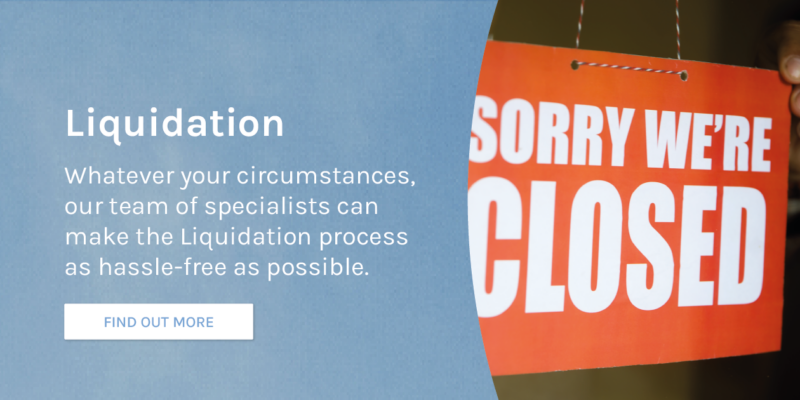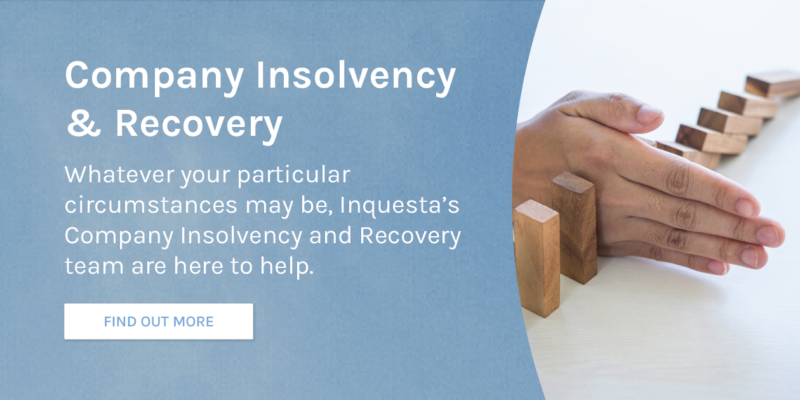Picture the scene, you’ve poured your heart and soul, as well as years of your life into creating and building a business from the ground up, only to be faced with the bleak reality of company liquidation — a hugely difficult and stressful situation for all who experience it. As the dust begins to settle, it’s likely you’ll find yourself forced to grapple with a wide variety of uncertainties.
When considering the possibilities of obtaining a mortgage, a common concern arises: Can a director of a liquidated company get a mortgage? Navigating the intricate landscape of post-liquidation finances can feel daunting. However, rest assured, delve into the intricacies of mortgages for directors of limited companies and explore the variety of available options today.
Understanding Company Insolvency & Liquidation
The term liquidation officially describes the formal process by which a company’s assets are distributed to its creditors in order to settle any and all outstanding debts. Liquidation marks the end of a company’s ongoing operations, an act that can have serious implications for its directors, in both the short and long-term.
There are generally two main types of liquidation:
- Voluntary Liquidation: Where the directors and shareholders decide, of their own volition, to wind up the company.
- Compulsory Liquidation: A form of liquidation initiated by creditors via a court order.
Looking for more information on liquidation? Check out our bank of dedicated blogs designed to ensure you are as up-to-speed as possible.
Can the Director of a Liquidated Company get a Mortgage: Factors to Consider
A director of a liquidated company can get a mortgage. However, it is critical to understand that the process of dealing with the lenders and getting a mortgage offer can be severely complicated if you have a history of financial insecurity and insolvency. It can impact your credit score, require you to contribute a higher deposit, and more.
There are a number of factors to consider when asking whether a director of a liquidated company will be able to get a mortgage or not. These include:
Impact on Credit Score
One of the main concerns for a director after liquidation is the potential impact closing the business could have on their credit score. It is expected that liquidation will likely have a lasting negative effect on a director’s credit rating, likely making it significantly more challenging to qualify for a mortgage.
A mortgage lender will typically assess an individual’s creditworthiness. This will be based on key factors, including:
- Payment history
- Level of outstanding debts
- Past or ongoing bankruptcy and insolvency
From the perspective of a lender, a director of a limited company could be viewed as financially unstable and, therefore, a much higher risk — making caution and careful consideration vital.

Financial Stability
A mortgage lender will also assess any applications they receive based on the applicant’s expected ability to repay the loan. As a director of a liquidated company, you will need to be able to prove, with as little doubt as possible, that you are financially stable and possess the necessary income to support the repayments of a mortgage.
Ways you can prove your financial stability include providing your lender up-to-date evidence of your continued steady employment or income. Lenders will likely also look into factors like your existing debts and financial commitments in order to evaluate your current stability.
Time Since Liquidation
The amount of time that has passed since the company liquidation occurred will also likely influence a mortgage proposal. As a general rule, the longer the period of time since liquidation and the more time the candidate has had to be able to rebuild, the more receptive the lender may be — as long as they can show the steps they’ve made to improve their creditworthiness.
Higher Deposit Requirements
It is also possible, in some cases, that a director of a liquidated company may be required to pay a higher deposit when applying for a mortgage compared to another applicant. This is because, again, lenders are likely to view liquidation as a red flag, making the mortgage applicant a much higher risk. The deposit is only a safety net for the lender to offset some of the risk.
A larger deposit can also be a good method for a director of a liquidated company looking to get a mortgage to improve their chances. Therefore, saving for a more substantial deposit could increase your likelihood of approval, so could be an interesting route to consider.
Specialist Lenders May Be Required
While mainstream lenders won’t necessarily reject a mortgage application from a director of a liquidated company, they may be hesitant to approve one. This is where specialist lenders may come in. These lenders are set up to cater to parties with an atypical eligibility criteria, making them much more likely to consider applications from a person with a history of liquidation.
However, just because you go to a specialist lender does not guarantee you’ll receive an offer in return. Additionally, specialist mortgages will often come with higher fees and interest rates, to reflect the additional risk the lender takes, making it essential that you carefully weigh up the pros and cons.
Seek Professional Advice
Navigating the mortgage application process will be complex for anybody, not least a director of a limited company. If you’re questioning ‘can a director of a liquidated company get a mortgage?”, it is highly recommended that you seek professional advice as soon as possible. Consulting with an experienced professional will be able to provide guidance tailored to your actual experiences.
With an expert behind you, you will be much better equipped to assess your situation, identify an appropriate and trustworthy lender, and improve your odds of getting a mortgage approved.
Secure Your Future With Inquesta
In the aftermath of liquidation, the prospect of obtaining a mortgage can seem like an insurmountable hurdle, made far more difficult due to mistakes that have been made in the past. However, with the trusted guidance and expertise of a specialist insolvency firm like Inquesta, you can rest assured that your financial future is in capable hands.
By leveraging the wealth of experience and strategic solutions possessed by our team, you can better equip yourself to navigate the complexities of the liquidation process and emerge on the other side stronger, and more knowledgeable than before.
We offer a range of services that cover all things insolvency, whether that be personal insolvency and bankruptcy, or company insolvency, administration, CVA’s, etc. Don’t let the looming spectre of financial insecurity dictate your future — contact Inquesta today and learn more about how our team can help you to reclaim your financial destiny.



